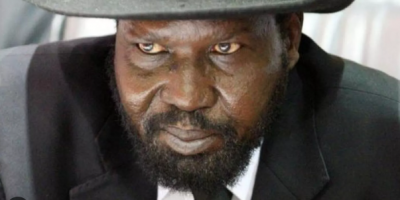South Sudan President Salva Kiir has dismissed Finance Minister Dier Tong Ngor in a surprising government reshuffle in the East African nation. A spokesperson for Kiir linked Ngor's dismissal to the recent decline in the value of the South Sudanese pound. When asked about the reason for Ngor's dismissal after nearly a year in office, the spokesperson remarked, "You have seen what is happening in the market, meaning the rise of the U.S. dollar against the South Sudanese pound." The initial announcement of Ngor's dismissal did not provide a reason for the decision.
The new Finance Minister is Bak Barnaba Chol, an economics graduate and a close political ally of Kiir. The spokesperson added that it is customary for Kiir to make ministerial changes when necessary. The South Sudanese currency has fallen by about a third against the dollar in the past two months, with analysts citing economic instability driven by sectarian violence and Kiir's failure to adhere strictly to the 2018 peace agreement as contributing factors to the currency's decline.
Since 2020, Kiir has dismissed four finance ministers. In March, he fired the foreign minister without explanation less than a week after dismissing the defense and interior ministers, in violation of the peace agreement with the opposition. The country's economy heavily relies on crude oil sales, which have been hindered by a civil war that ravaged the nation from 2013 to 2018 shortly after its separation from Sudan in 2011.
Boboja James, an analyst at the Social Policy and Research Institute based in Juba, stated that Ngor's dismissal is unlikely to resolve the economic challenges facing the country. James added, "Even if President Kiir dismisses 1,000 finance ministers or central bank governors, as long as there is no economic reform and the small revenues from oil do not support agriculture and other productive sectors... there will never be any improvement in the economy."




